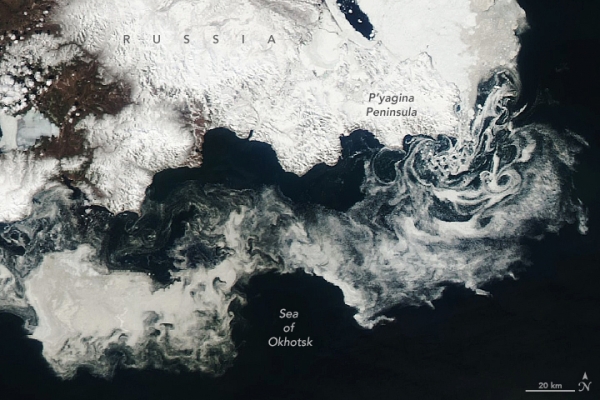Sea ice in the Sea of Okhotsk put on a dazzling display in late May 2023, as the winter’s ice pack thinned and broke up. The freely drifting ice, subject to wind and currents, formed a series of spirals off the coast of Russia.
The Moderate Resolution Imaging Spectroradiometer (MODIS) on NASA’s Aqua satellite captured this image on May 28, 2023. More-intact ice is visible on the north side of the P’yagina Peninsula (Poluostrov P’yagina), at the top of the image, with smaller pieces breaking away and drifting to the south and west. A group of islands—too small to see clearly at this scale—off the eastern tip of the land may be responsible for the small eddies in that area. Spirals such as these can form downstream of a stationary object that obstructs fluid flow.
The Sea of Okhotsk, which is hemmed in by the Siberian coast and the Kamchatka Peninsula, is the southernmost sea in the Northern Hemisphere that freezes seasonally. An influx of frigid Siberian air, in addition to inflows of freshwater from rivers that lower the salinity and raise the freezing point of the water, create conducive conditions for ice to form during the colder months.
Read more at: NASA Earth Observatory
Algal bloom in the western basin of Lake Erie, as seen by aircraft during a flyover on September 2017. (Photo credit: Zachary Haslick, Aerial Associates Photography Inc.)


